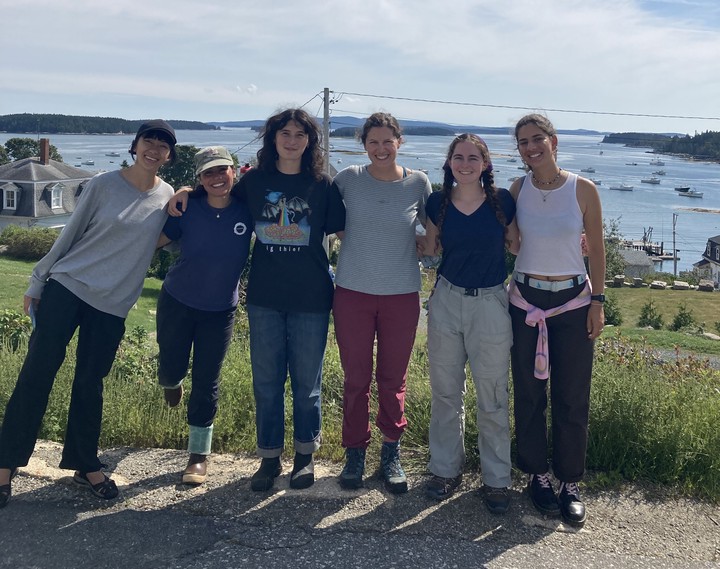Henry David Thoreau Faculty Grant Awarded for Community Engaged Data Science Program
 In Stonington on a field trip with the course Navigating Change
In Stonington on a field trip with the course Navigating Change
As a graduate student I participated in several data study groups at the Alan Turing Institute in London. The data study groups brought together PhD students, postdocs, and researchers from a range of disciplines and institutions to work with industry, government, and non-profits on challenging data science questions ranging from counting seals from satellite images in the Antarctic to predicting mobile phone game switching behavior. These week-long “collaborative hackathons” were some of the highlights of my PhD and inspired me to embark on a career in data science.
Inspired to give my students the same experience, I taught a community-engaged data science short-term course in Spring 2022 at Bates College where students worked on several projects with local community partners ranging from understanding tobacco-use and smoke exposure among immigrants in Maine from survey data to developing a data pipeline for monitoring temperature and intertidal biodiversity data in the Gulf of Maine.
With generous support from a Henry David Thoreau Faculty Grant I will be launching a new Community-Engaged Data Science program at the College of the Atlantic this spring. The focus of the program for the 2023-2024 academic year is to connect students with local environmental organizations and community partners to analyze regional environmental issues and develop data-driven environmental solutions. The grant will support the development of student leadership and technical skills through new interdisciplinary coursework, data science skills based workshops, and four fully-funded community data science summer internships. I am very excited to work with several local community partners for the project including the Maine Center for Coastal Fisheries, Manomet, the Penobscot Indian Nation Water Resource Department, and the Cranberry Isles communities.
My upcoming spring course Community-Engaged Data Science, emphasizes going beyond individual fields of study to solve real-world problems and understand community partner needs. Over the course of ten weeks, students will work with organizations with an environmental or social mission to find practical solutions to diverse data problems that improve people’s lives and the health of our planet. As part of the course we will also be bringing in a range of experts to teach workshops on survey design, advanced github commands, database creation and more.
During the course students build skills in project management, using agile methodologies employed by data science teams and bi-weekly meetings with community partners that foster co-development and iterative and incremental project delivery. Working with community partners on applied problems students are able to broaden their perspectives on what “data science” can do. Students are exposed to a range of scientific ways of knowing and doing beyond their home discipline, helping students to cultivate an interdisciplinary perspective on what counts as research. Applying their skills to real problems provides students with a greater sense of agency to tackle research questions that are important and meaningful to them.